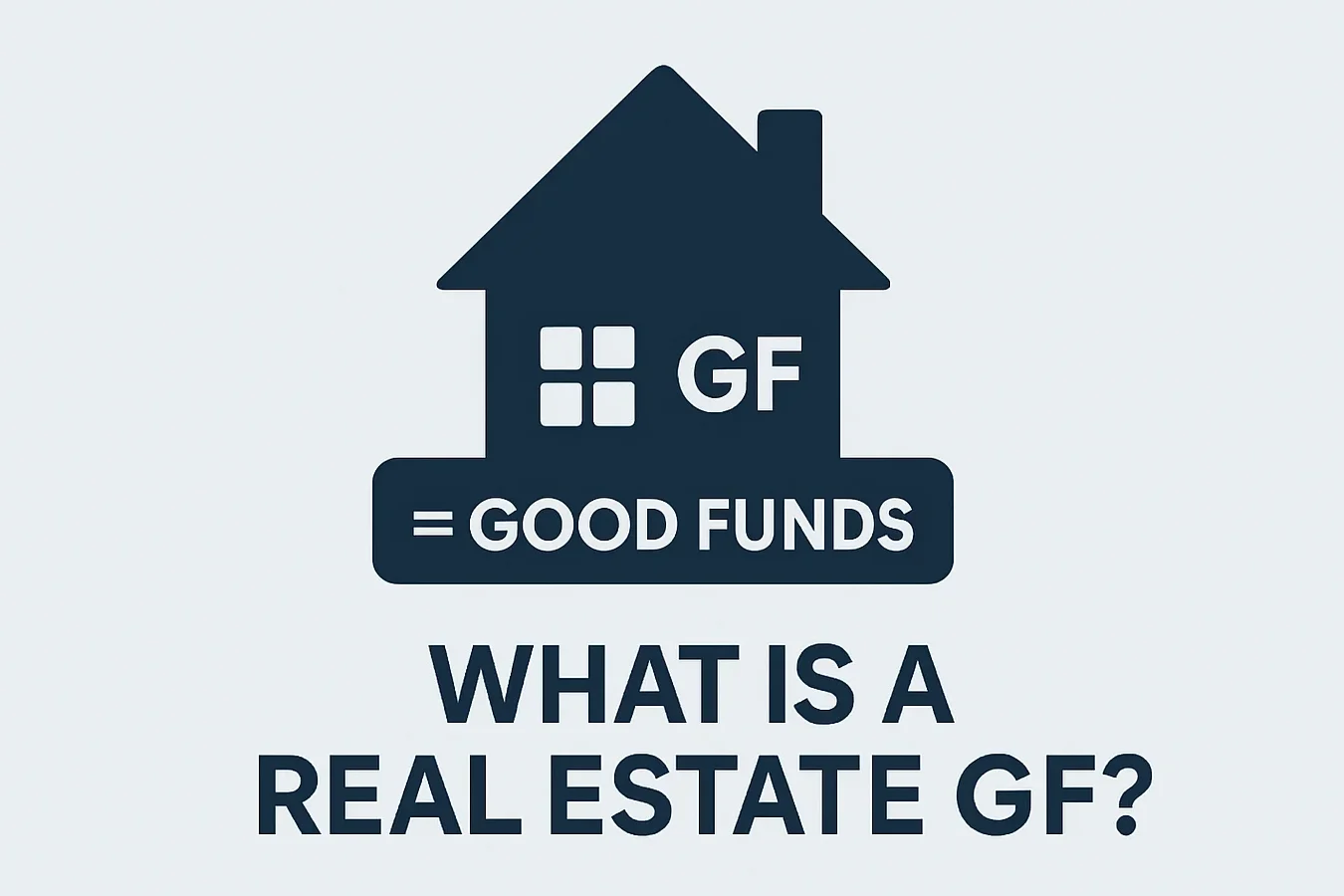Fellow co-workers, locution Real Estate GF has lately permeated far and wide in the realms of property-investment lingo, causing no low amount of anxiety on the part of newcomers and the veterans alike. The term may seem to be nothing more than slang, but a strict understanding of the definition of what is referred to by the term Real Estate GF is still imperative to any individual whose interest is truly serious activity in real-estate dealing.
In the subsequent pages, I will outline the actual definitions of the term, analyze its implications on the industry operations and provide practical practice to prospective investors who are considering the involvement in real-estate business relations based on a partnership strategy.
Metaphorically speaking, the most literal meaning of the term, which translates to Real Estate GF, is a businesswoman in the realm of owning right to property. This kind of title eliminates the customary separation between the broker and agent and suggests in its of place a multidisciplinary skill set that includes the areas of both marketing and deal-synstchestrating. To this end the role of the Real Estate GF is not to simply act as a middleman but rather be an integrative manager in that its competencies cover the entire gamut of a real-estate transaction.
The second and more related meaning is used to define the abbreviation Real Estate GF to mean the senior- most female executive who is charged with the responsibility of managing an organization real-estate department. The “Real Estate GF”, in this form, undertakes primary architectural responsibility at the box level in decision making on deciding on acquisition and disposal strategies, reconfiguration of the asset and in integrating physical and financial assets to form a unified whole.
Generally speaking, in either reading, the Real Estate GF works as a key agent in the nexus of the creation of value. The fact that she is here indicates an institutional readiness on gendered diversity in what has traditionally been considered a male field; and, she can be seen as embodying a competency profile that is fast becoming a key to the successful practice of (any) real-estate.
The Multiple Meanings of “Real Estate GF”
1. Good Funds (GF): The Professional Definition
Commonly, in professional real estate language, the abbreviation GF represents as Good Funds, a very important principle establishing transaction security and compliance with the regulations. Good Funds are valid, legalized monies which have been duly deposited and cleared so that real estate affordances are able to take place.
Good Funds requirement came out as a state law to guard the consumers and curb cases of fraudulent acts in a property dealing. According to this legal framework, all the pay offs at closing have to be supported by verifiable available funds that have been cleared through the banking system.
Good Funds can take form as acceptable ways as shown by:
- Wire transfers of confirmed financial institutions
- Approved bank Cashier checks
- Certified funds which are subjected to right clearing periods
- Legal cash payment A cash payment that does not exceed the limit set by law (usually under 10 thousand dollars).
The Need of Good Funds:
- Stops fraud activities, and bounced checks
- Assures all parties to get valid payments on closing
- Within the Federal anti-money laundering regulations
- Shields title companies and the attorneys involved with closing transactions against liability
2. General File Number: Transaction Tracking System
The other professional definition of the term GF is the General File Number- this number is a distinguished title that the title companies use to define specific real estate deals. The system provides appropriate documentation, coordinates the activities of many parties, and facilitates the nullification of fraud in the process of closing.
General File Numbers play an important number of roles:
- Allow effective tracking of the transaction documents
- Multiple buyer-seller, lender-agent communication coordination
- Keep proper records that can be used in cases of legality and auditing
- Set up easy closings by having all paper works in place
3. Real Estate Girlfriend/Partner: The Personal Investment Angle
Real Estate GF is a modern term commonly used to define a girlfriend, spouse or romantic partner who is actively involved in real estate investment activities and businesses. It has been a popular working interpretation of how this phenomenon is caused by a dynamic shift in relationships and investment patterns whereby, one in every four unmarried couples, between 18 and 34 years of age, purchase a house jointly.
The increase of partner-based real estate investing is very dramatic in many aspects with the way couples plan and build their wealth. The number of couples investing in real estate business together is increasing, as many as them enter the market and it is explained by the access to doubled resources and pooled expertise.
The Impact of Real Estate GF on Modern Investing
Financial Advantages of Partnership Investing
Enhanced Capital Access
When partners combine their financial resources, they can access larger properties and better financing options than individual investors. This enhanced buying power often translates to:
- Higher quality investment properties
- Better loan terms and interest rates
- Larger down payments that reduce monthly carrying costs
- Access to commercial properties typically beyond individual reach
Risk Distribution and Mitigation
Partnership investing naturally distributes risk across multiple parties, reducing individual financial exposure. Key risk mitigation benefits include:
- Shared liability for property losses or damages
- Diversified skill sets for better decision-making
- Multiple income sources supporting mortgage payments
- Reduced individual financial strain during market downturns
Operational Efficiency
Partners can divide responsibilities based on their strengths and availability, creating more efficient operations:
- One partner handles property management while another focuses on acquisitions
- Shared workload prevents burnout and maintains investment momentum
- Combined networks provide more opportunities and professional connections
- Diverse perspectives improve investment analysis and decision-making
Legal and Structural Considerations
Ownership Structure Options
The most common forms of ownership of couples are: joint tenancy (50-50 shares of ownership rights), tenancy in common (individual owners share in a certain percentage), or tenancy by entirety (whole shares of ownership among the owners).
Each structure has different implications for:
- Estate planning and inheritance rights
- Tax obligations and benefits
- Decision-making authority
- Exit strategies and property disposition
Legal Protections for Unmarried Couples
Unmarried couples lack marital rights of the property that they obtain during the relationship, and they can effectively have no rights to anything in a case of a breakup. This fact necessitates the need of adequate legal records.
Key legal protections include:
- Cohabitation agreements that specify who owns what and how joint assets will be allocated in a breakup
- Partnership agreements outlining investment responsibilities and profit sharing
- Property ownership documents clearly defining individual stakes
- Exit strategy provisions for relationship dissolution
Types of Real Estate GF Partnerships
Active Partnership Models
Equal Investment Partners
Both partners contribute equally to property acquisitions, management, and decision-making. This model works best when partners have:
- Similar financial resources and investment capacity
- Complementary skills and expertise
- Aligned investment goals and risk tolerance
- Equal time availability for property management
Specialized Role Partners
Partners divide responsibilities based on their strengths and interests:
- One handles financial analysis and acquisition
- The other manages renovations and property improvements
- Shared responsibility for tenant relations and maintenance
- Combined efforts for portfolio expansion and strategic planning
Passive Investment Structures
Capital Partner and Operating Partner
One partner provides most of the capital while the other handles day-to-day operations:
- Capital partner typically receives preferred returns
- Operating partner earns management fees and residual profits
- Clear agreements define roles, responsibilities, and compensation
- Regular reporting maintains transparency and accountability
Benefits of Real Estate GF Partnerships
Financial Advantages
Improved Cash Flow Management
The joint income also gives mortgage-friendlier debt-to-income ratios, and the combined cost of living lowers an individual economic burden. Joint ventures are also well equipped to keep more cash in reserve in case of unforeseen expenditure or openings.
Tax Optimization Strategies
Partnerships enable sophisticated tax strategies:
- Strategic loss allocation between partners
- Depreciation benefits optimization
- Business expense sharing and maximization
- 1031 exchange opportunities for portfolio growth
Enhanced Credit Profile
Multiple credit profiles can improve loan qualification odds and terms, especially when one partner has stronger credit or higher income than the other.
Operational Benefits
Skill Diversification
Partners bring different strengths to the partnership:
- Market analysis and investment identification
- Renovation planning and contractor management
- Tenant screening and property management
- Financial planning and tax strategy
Network Expansion
Each partner contributes their professional and personal networks, expanding access to:
- Off-market property opportunities
- Reliable contractors and service providers
- Additional investment capital and partners
- Professional services (attorneys, accountants, agents)
Workload Distribution
Shared responsibilities prevent burnout and maintain investment momentum:
- 24/7 tenant support coverage
- Alternating property inspection schedules
- Divided administrative and paperwork tasks
- Shared decision-making reduces individual stress
Challenges and Risk Factors
Relationship Dynamics
Decision-Making Conflicts
Partners may disagree on investment strategies, property selections, or management approaches. Common conflict areas include:
- Risk tolerance differences
- Renovation budget disagreements
- Tenant policy variations
- Exit timing decisions
Unequal Participation
When one partner contributes more time, effort, or expertise while profits remain equal, resentment can develop. Clear role definitions and fair compensation structures help prevent these issues.
Personal vs. Business Boundaries
To maintain success and sanity, open communication and boundaries go a long way for couples in real estate business together.
Financial Complications
Profit Sharing Challenges
All returns must be divided according to partnership agreements, potentially reducing individual gains compared to solo investing. Partners must also coordinate on:
- Reinvestment vs. distribution decisions
- Major capital improvement funding
- Emergency expense handling
- Long-term portfolio growth strategies
Credit and Liability Issues
Joint liability means each partner is responsible for the other’s actions and debts related to partnership properties. This includes:
- Mortgage payment obligations
- Property damage liability
- Tenant lawsuit exposure
- Tax obligation responsibilities
Exit Strategy Complications
Partnership Dissolution
Ending real estate partnerships can be complex and expensive, particularly when personal relationships are involved. Key challenges include:
- Property valuation disagreements
- Buyout price negotiations
- Market timing decisions
- Emotional attachments to specific properties
Legal Entanglements
Joint tenancy can create estate tax problems if only one person in the couple has contributed to the purchase, making proper legal structure crucial from the beginning.
Best Practices for Real Estate GF Success
Foundation Building
Clear Goal Alignment
Partners must discuss and document:
- Investment objectives and timelines
- Risk tolerance levels
- Financial contributions and expectations
- Long-term wealth building strategies
Comprehensive Communication Systems
Establish regular communication protocols:
- Weekly partnership meetings
- Monthly financial reviews
- Quarterly strategy assessments
- Annual partnership agreement reviews
Professional Legal Structure
Work with qualified attorneys to create:
- Detailed partnership agreements
- Appropriate business entity formation (LLC, Partnership, etc.)
- Clear ownership documentation
- Comprehensive exit strategy provisions
Operational Excellence
Financial Management Systems
Implement professional systems for:
- Property income and expense tracking
- Partnership profit and loss allocation
- Tax preparation and reporting
- Cash flow management and forecasting
Property Management Standards
Develop consistent approaches to:
- Tenant screening and selection
- Maintenance and repair protocols
- Rent collection and enforcement
- Property improvement planning
Risk Management Strategies
Protect the partnership through:
- Comprehensive insurance coverage
- Legal entity liability protection
- Professional relationship maintenance
- Regular legal and tax compliance reviews
Real-World Success Stories
Case Study 1: The Tech Couple Transition
As software engineers, Sarah and Michael combined their savings and analytical capabilities in order to create a portfolio in rental properties. They were data-driven when it comes to the selection of properties and systematic when it comes to renovation techniques, and have expanded their business in five years to twelve units.
Key Success Factors:
- Complementary technical skills
- Disciplined reinvestment strategy
- Professional property management systems
- Clear role division and communication protocols
Case Study 2: The Service Industry Partnership
Maria and James combined their customer service backgrounds with real estate investing, focusing on exceptional tenant relations and property maintenance. Their approach generated strong cash flow and minimal vacancy rates across their portfolio.
Key Success Factors:
- Customer service excellence applied to property management
- Strong local market knowledge and networking
- Conservative financial management and cash reserves
- Focus on long-term tenant relationships
Legal and Tax Implications
Partnership Tax Structure
Real estate partnerships typically operate as pass-through entities, meaning:
- Income and losses flow through to individual partners
- Partners report their share on personal tax returns
- Partnership files informational returns but generally pays no federal tax
- State tax obligations vary by jurisdiction
Key Tax Benefits
Depreciation Advantages
Partners can claim depreciation deductions based on their ownership percentage, potentially offsetting other income sources and reducing overall tax liability.
Operational Deductions
Property-related expenses are deductible, including:
- Management and maintenance costs
- Professional service fees
- Travel expenses for property oversight
- Educational and networking investments
1031 Exchange Opportunities
Partnerships can defer capital gains taxes through like-kind exchanges, enabling portfolio growth without immediate tax consequences.
Professional Tax Guidance Requirements
Partnership taxation complexity requires qualified professional assistance for:
- Annual tax return preparation
- Quarterly estimated payment planning
- Strategic tax planning and optimization
- Compliance with changing tax regulations
Technology and Modern Real Estate GF Partnerships
Digital Tools for Partnership Success
Property Management Software
Modern partnerships leverage technology for:
- Automated rent collection and payment processing
- Maintenance request tracking and contractor coordination
- Financial reporting and partnership accounting
- Tenant communication and lease management
Investment Analysis Platforms
Partners use sophisticated tools for:
- Property valuation and cash flow analysis
- Market trend research and forecasting
- Deal comparison and decision-making
- Portfolio performance tracking and optimization
Communication and Collaboration
Cloud-based systems enable efficient partnership operations:
- Document sharing and version control
- Project management and task coordination
- Financial transparency and reporting
- Strategic planning and goal tracking
Future Trends in Real Estate GF Partnerships
Evolving Partnership Structures
Crowdfunding Integration
Conventional partnerships are now added with the features of crowdfunding that enable couples to reach bigger transactions but with their proper control of how they will invest.
Technology-Enhanced Due Diligence
Natural sciences and artificial intelligence help enhance property analysis powers and partners make better choices about investments with increased confidence.
Sustainable and ESG Focus
Modern partnerships increasingly prioritize environmental, social, and governance factors in their investment decisions, focusing on:
- Energy-efficient property improvements
- Sustainable development practices
- Community impact and social responsibility
- Long-term environmental stewardship
Regulatory Environment Changes
Increased Transparency Requirements
There are patterns regulating toward more transparency in real estate deals, which are influence the structure and quality of reporting partnerships.
Enhanced Consumer Protections
There are some new regulations that are enhancing the safeguarding of real estate investors; these are through partnership model structures and syndication schemes.
Making the Right Decision: Is Real Estate GF Right for You?
Self-Assessment Questions
Before pursuing a Real Estate GF partnership, consider:
Financial Readiness
- Do both partners have stable income and good credit?
- Can you maintain adequate cash reserves for unexpected expenses?
- Are your financial goals and risk tolerances aligned?
- Do you understand the tax implications and ongoing obligations?
Relationship Dynamics
- Can you separate business decisions from personal emotions?
- Do you communicate effectively about money and investments?
- Are you both equally committed to the investment timeline?
- Do you have complementary skills and strengths?
Investment Compatibility
- Do you agree on target property types and locations?
- Are your renovation and management philosophies compatible?
- Can you make joint decisions efficiently and fairly?
- Do you share similar exit strategy preferences?
Professional Consultation Checklist
Before formalizing any Real Estate GF partnership, consult with:
Real Estate Attorney
- Partnership agreement drafting and review
- Property ownership structure recommendations
- Legal entity formation and compliance
- Dispute resolution and exit strategy planning
Tax Professional
- Partnership taxation implications and strategies
- Ongoing compliance requirements and deadlines
- Tax optimization opportunities and planning
- Record-keeping and reporting systems
Financial Advisor
- Investment strategy alignment with overall financial goals
- Risk assessment and mitigation strategies
- Insurance coverage evaluation and recommendations
- Long-term wealth building integration
Conclusion: The Future of Real Estate GF Partnerships
Real Estate GF has various interpretations on it that range as technical industry slang Good Funds and General File Numbers to more recent affectionate involvement of couples so as to invest together in real estate. One of the best ways that couples can flourish financially is the creation of wealth, which is done essentially through real estate, this makes the dynamics of the real estate all the more important in understanding.
When it comes to any professional dealings with Good Funds policies or entering a relationship with your partner, you need to plan this process carefully, communicate effectively, and receive professional advice so that everything can end successfully. Properly structured Real Estate GF partnerships can go far toward providing access to more capital, mitigation of risk, operational efficiency and tax savings enough to build wealth and successful investment at a much faster rate.
Nevertheless, such partnerships are also complicated by other sets of complications especially when individual relations are involved in making business decisions. Even the best intents could go wrong due to unequal participation, decision-making conflicts, and problems with the development of the exit strategy unless the partnership is well planned with references to the legal protection.
Real Estate GF partnerships have a bright future in prospect since both technology and changes in market conditions present opportunities to increase collaboration options and form new partnerships. Properly organized partnership will also prove increasingly useful to real investors in real estates as regulatory environment keeps placing more emphasis on transparency and consumer protection.
To obtain information or to take a Real Estate GF partnership either on a technical level or personal level excellent preparations are of necessity. These are legal advice, budgeting, proper lines of communication and realistic evaluation of compatibility and stages of commitment. When a partnership is done right, the real estate connections offered by the Real Estate GF can prove to be quite a good foundation towards developing a lot of wealth and even enhancing personal and business relationships.
The secret of success is to realize that any Real Estate GF partnerships, no matter what these partnerships appear, share the same basic requirements: clarity of goals, professional organization, continuous contact and respect. Through the adoption of these concepts and the enlightenment of the experiences of others, you would be able to utilize the ultimate power of Real Estate GF partnerships in order to help fulfill your investment goals and secure a steady financial future.










